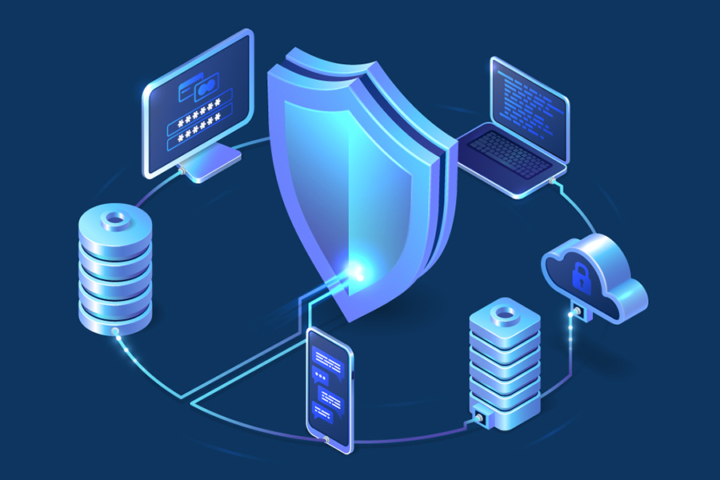How Pulse Keeps Your Data Safe – And Why Fiber Internet Is the Secure Choice
At Pulse Fiber Internet, one of the most common questions we hear from our community is: “What are you doing to protect my information?” It’s a great question and one we take very seriously.
When you connect to the internet, you’re not just streaming movies, scrolling social media, or working from home; you’re sharing important pieces of your life. From login credentials to personal data and even business transactions, you deserve to know that your internet provider is doing everything possible to keep your information safe.
That’s why we want to share a behind-the-scenes look at the steps we take to safeguard our customers’ privacy and explain why fiber internet, the technology at the core of Pulse’s network, is inherently safer than other options.
Protecting Your Privacy: Our Commitment
In our previous blog post, At Pulse Fiber Internet, Your Privacy Matters, we shared the principles that guide how we protect your information. To quickly recap, Pulse:
- Does not sell your data. Unlike some large telecom companies, we don’t see your information as a product to monetize. Your browsing history and personal information remain yours.
- Encrypts sensitive data. Whether in transit across our network or stored on our systems, we use industry-standard encryption to keep your data safe from prying eyes.
- Follows best practices for password protection. Customer account passwords are stored using one-way hashing with unique salts — a method that ensures they cannot be reverse-engineered if ever exposed.
- Encrypts personally identifiable information (PII). Any sensitive information like your name, address, or account details is encrypted both while it’s being transferred and while it’s stored in our systems.
These safeguards aren’t just checkboxes for us. They are part of our mission as a community-owned internet provider: to treat our customers with respect and to protect their privacy at every step.
Behind the Technology: How We Keep Network Traffic Secure
Beyond protecting your personal data, Pulse also takes steps to ensure your internet traffic itself remains private and separated from other customers’. Here’s how we do it:
- Unique, Isolated Circuits: Every Pulse customer is provisioned with their own isolated circuit using advanced technologies like XGS-PON, MPLS pseudowires, and Q-in-Q VLAN separation. These are industry-standard methods that guarantee your internet traffic is kept separate end-to-end.
- Access Layer Protection: At the entry point of our network, XGS-PON technology enforces traffic separation at the protocol level. On top of that, AES encryption protects each subscriber’s traffic between their Optical Network Terminal (ONT) in the home and our Optical Line Terminal (OLT) in the field.
- Core Network Safeguards: Inside our network, we layer on additional protections to maintain strict separation of customer traffic from end-to-end, not just at the core. Technologies like MPLS pseudowires, which act as secure, virtual point-to-point links and Q-in-Q VLAN encapsulation create private pathways for each customer. This means your data always stays in its own protected lane, fully isolated from others as it travels across the entire Pulse network.
In simple terms? Your internet traffic is kept in its own protected “lane” from your home all the way through the Pulse network.
Why Fiber Internet Is Safer Than Other Options
Security isn’t just about policies and processes; it’s also built into the technology. One of the often-overlooked advantages of fiber internet is that it is fundamentally harder to intercept than older technologies like copper or wireless.
Here’s why:
- No Signal Radiation: Traditional technologies like coaxial cables or wireless signals can unintentionally radiate data, creating the possibility of interception. Fiber optics, on the other hand, transmit data using light inside glass strands. These signals do not radiate, making them much harder to tap into.
- Resistant to Eavesdropping: While specialized tools called optical taps do exist, the signals they capture are unreadable when combined with the per-customer encryption Pulse applies at multiple points across the network.
- Tamper-Resistant Design: Fiber cables are built to detect disruptions. If someone tries to physically access the fiber line, the attempt is often noticeable and can cause service interruptions — meaning any malicious activity is far more likely to be detected.
The result is a network that’s inherently more secure at the physical level, with encryption layered on top for added protection.
What This Means for You
As a Pulse customer, here’s what you can feel confident about:
- Your privacy is respected. We do not and will not sell your personal data.
- Your data is protected. From encryption to hashing, we use best-in-class practices to keep your information safe.
- Your traffic is isolated. Each customer has a private, protected circuit. No shared lanes.
- Your connection is safer with fiber. Unlike copper or wireless, fiber technology provides an inherent security advantage.
Our Promise
Pulse was built for Northern Colorado. That means our commitment is to our community, our neighbors, our friends. Internet service shouldn’t come with hidden trade-offs like compromised privacy or insecure connections.
We believe you deserve both world-class speed and world-class security, and we’ve built our network with that promise in mind.
So, when you’re streaming a movie, paying a bill, video conferencing for work, or simply browsing the web, you can do so with confidence knowing that Pulse is working behind the scenes to keep your data safe.
Have more questions about our privacy practices or fiber internet security?
We’d love to hear them! Reach out to our team anytime because when it comes to your internet connection, peace of mind matters just as much as speed.


